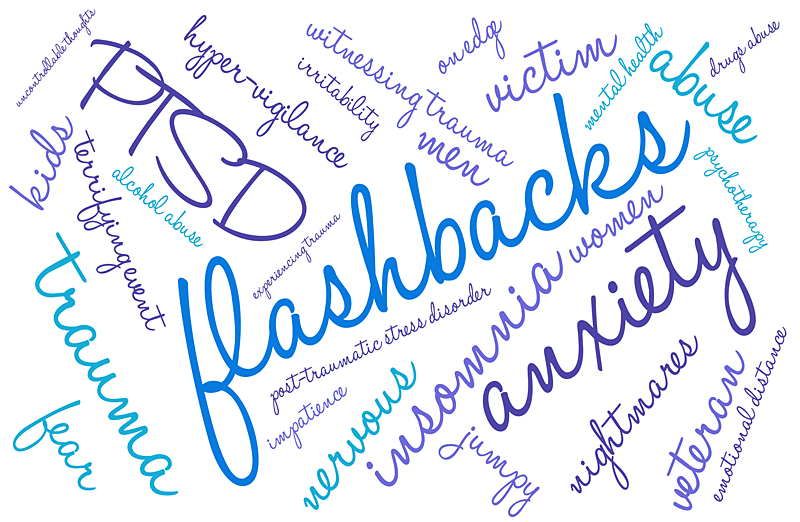Editor’s Note: Our previous blog explored how gambling can be an analgesic or a pain reliever for those who struggle with physical or emotional distress. Some people slip into a hyper-focused state while gambling and then ignore or literally don’t feel symptoms and conditions like back pain or needing to go to the restroom. This blog explores the correlations between poor decision-making and pain, especially when applied to high-risk behaviors. To review or re-read our prior post, visit https://maryhaven.com/chronic-pain-and-gambling-addiction-pt1/.
A 2017 study found that veterans with Post-Traumatic Stress Disorder were more likely to engage in risky behaviors. These actions – driving under the influence, problem gambling, physical aggression – often led to additional trauma that prolonged and deepened their initial condition.
The sequence then follows like this. Trauma impacts decision making. Those decisions then touch off deeply painful outcomes. All cumulatively magnify and intensify desperation and suffering.
This phenomenon raises a whole sad daisy-chain of chicken and egg questions. Whatever came first, research proves a link between high-risk behaviors and PTSD exists. In fact, “reckless and self-destructive behavior” has been added as a symptom of PTSD in the fifth edition of the Diagnostic and Statistical Manual of Mental Disorders, the handbook used to diagnose psychiatric conditions.
All forms of pain and, as Dr. Heather Chapman, Ph.D., Deputy Director, Clinical Psychologist and Supervisor at the Louis Stokes Cleveland VAMC Veteran’s Addiction Recovery Center, points out, even the fear of pain can lead to hasty decisions. “Pain threat” or the degree of fear and worry we associate with discomfort impacts judgment.
But there may be more at work than just psychological and emotional blocks. Some compelling research finds that pain actually depresses our brain’s ability to think, reason and assess potential consequences. As documented in a journal published by the International Association for the Study of Pain, “chronic pain is associated with a specific cognitive deficit, which may impact everyday behavior especially in risky, emotionally laden, situations.”
The expression “bull in a China shop” conjures images of a situation where damage is imminent. In a very limited sense, this imagery applies to problem gambling. The thrill of winning and threat of losing overrides the brain’s capacity to problem solve.
Ironically, many forms of gambling call for nearly instantaneous analysis and logical decision-making. Games like sports betting or poker hinge upon estimating odds and calculating thoughtful wagers, all dictated by individual and group athletic performance statistics and experience, numbers of cards in a deck versus what’s already been played, how many players are holding how many cards, etc. Impulsive, reckless reasoning result in greater losses. If pain has dulled the senses and dampened mental capacity, gambling becomes an even riskier business.
As Dr. Chapman notes, you can see the connection between impaired brain functionality even more clearly in Traumatic Brain Injury patients and those affected by some form of dementia or other disorders. “When in pain, our ability to think clearly is impaired,” she says. “Likewise, when we’re afraid of pain, we will look for relief, and gambling can provide that relief in the moment, then leading to an unfortunate exacerbation of psychological and physical consequences.”
A 2014 study found that of the 17% of Americans who may be in early stages of dementia, gambling can prove a devastating habit, especially slot machines. The combination of lights and sounds in concert with the psychological “buzz” of playing these devices again trumps sound reason that calls us to slow down or quit.
And, as noted, being “out of control” from pain can lead to additional devastating consequences.
Maria Garner, MSW, LSW, ICGC-II and gambling counselor at Maryhaven, shares that her clinical experience parallels the findings of several research studies that find higher incidences of domestic violence among pathological gamblers. “I’ve had quite a few gamblers come in and they’re in a situation that is violent or verbally abusive. Some start gambling to stay away from the house, then develop an addiction. Some were abused because of gambling. More than likely, there’s been some kind of abuse and gambling was the perpetrator or the or the pain reliever.”
Pain, gambling, risky decisions, anger—we can’t always tell which came first. But we do know that, like a game of dominos, the cascade of physical and emotional repercussions may leave little untouched after the fall.
If you or a loved one need help with problem gambling, contact Maryhaven here or call 614-324-5425.
